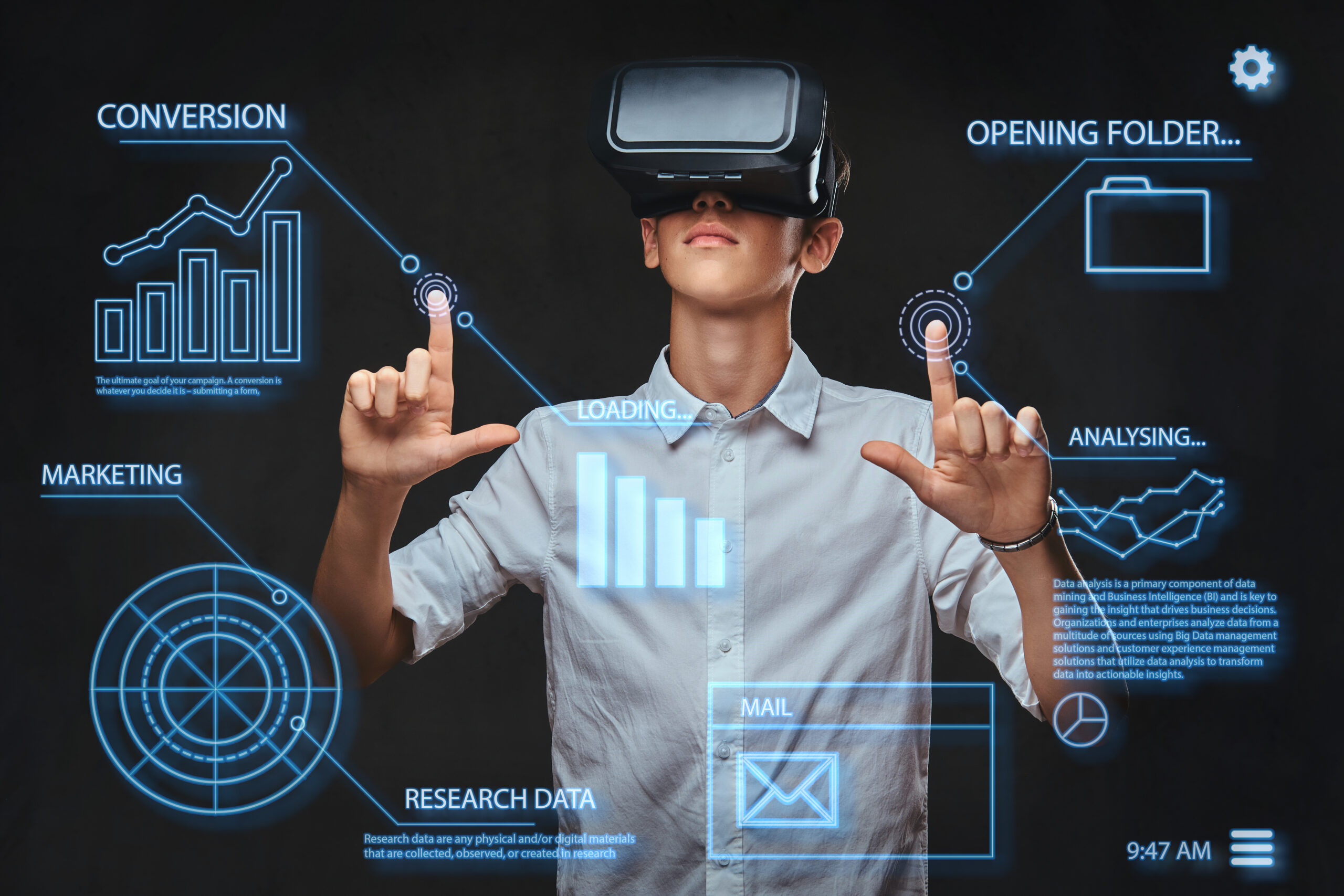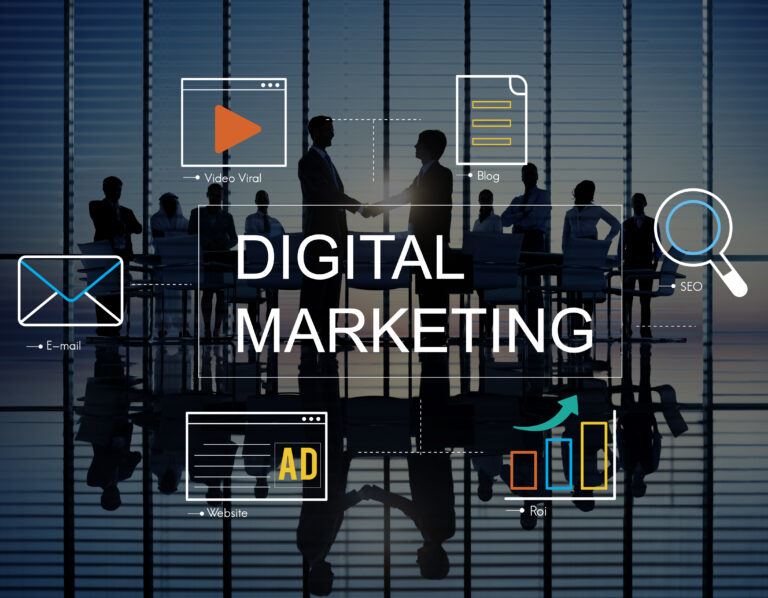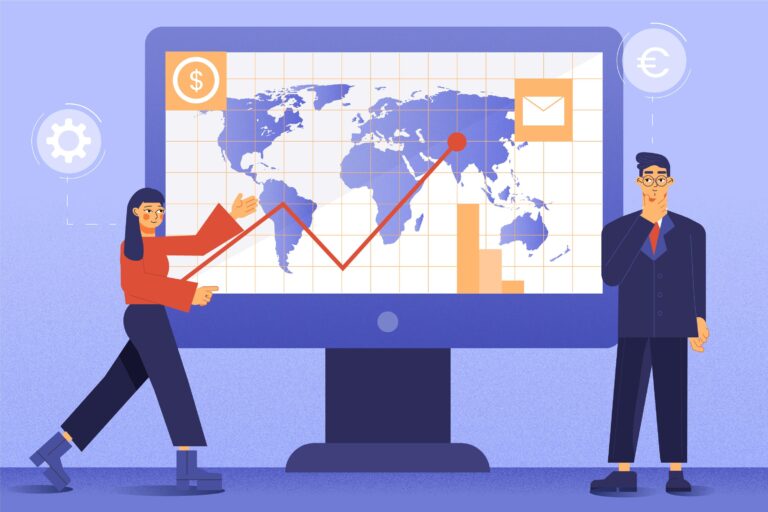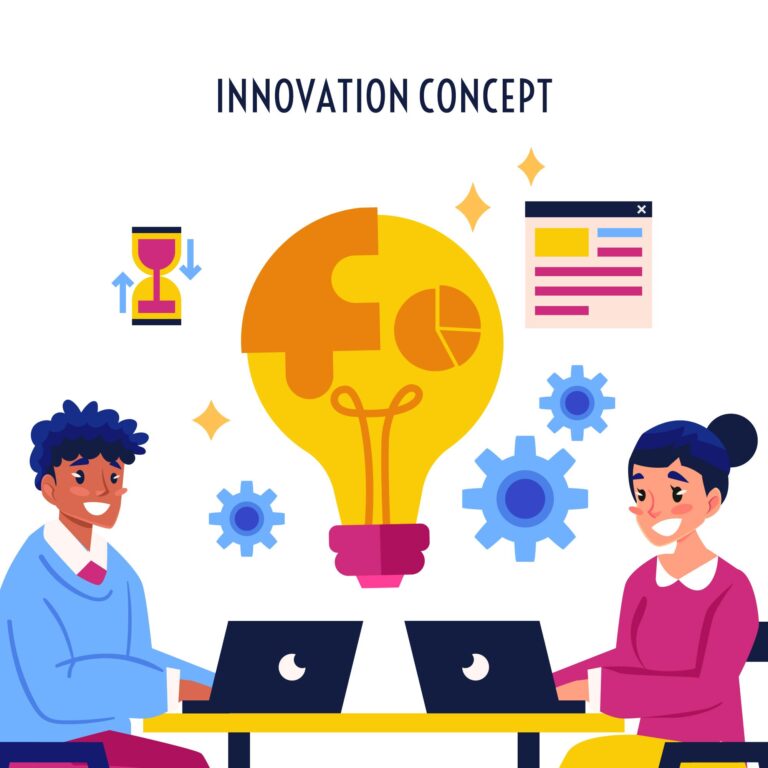The Future of Tech in Business
The landscape of business is evolving rapidly, driven by continuous advancements in technology. From artificial intelligence to blockchain, the future of tech in business promises to bring unprecedented changes, enhancing efficiency, productivity, and customer experience. Let’s explore the future of tech in business and how companies can leverage these innovations to stay competitive.
Artificial Intelligence (AI) and Machine Learning
Artificial Intelligence and machine learning are revolutionizing how businesses operate, making processes more efficient and decision-making more data-driven.
Automation and Efficiency
AI-powered automation is streamlining business operations by handling repetitive tasks such as data entry, customer support, and inventory management. Tools like chatbots provide instant customer service, reducing response times and improving customer satisfaction. Automation allows employees to focus on higher-value tasks, enhancing overall productivity.
Data-Driven Decision Making
Machine learning algorithms analyze vast amounts of data to provide insights that guide strategic decisions. Predictive analytics helps businesses forecast market trends, customer behavior, and sales performance. By leveraging AI, companies can make informed decisions, optimize operations, and stay ahead of the competition.
Blockchain Technology
Blockchain technology is set to transform business processes by providing secure, transparent, and efficient solutions.
Supply Chain Management
Blockchain enables end-to-end visibility in the supply chain, ensuring transparency and traceability. By recording every transaction on a decentralized ledger, businesses can track products from production to delivery, reducing fraud and ensuring authenticity. This transparency builds trust with consumers and partners.
Smart Contracts
Smart contracts are self-executing contracts with the terms of the agreement directly written into code. These contracts automatically execute when predefined conditions are met, eliminating the need for intermediaries. Smart contracts reduce costs, speed up transactions, and enhance security, making business processes more efficient.
Internet of Things (IoT)
The Internet of Things (IoT) is connecting devices and systems, providing real-time data and insights that drive innovation.
Enhanced Operations
IoT devices collect and transmit data on various aspects of business operations, such as equipment performance, energy usage, and environmental conditions. This data helps businesses monitor and optimize processes, reduce downtime, and improve efficiency. For example, IoT-enabled sensors in manufacturing can predict equipment failures and schedule maintenance before issues arise.
Improved Customer Experience
IoT technology enhances customer experience by providing personalized and seamless interactions. Smart devices, such as wearables and connected home appliances, collect data on user preferences and behavior. This information allows businesses to offer tailored products and services, improving customer satisfaction and loyalty.
Cloud Computing
Cloud computing is revolutionizing the way businesses store, manage, and access data, offering flexibility and scalability.
Cost-Effective Solutions
Cloud computing eliminates the need for expensive on-premises hardware and infrastructure. Businesses can scale their IT resources up or down based on demand, paying only for what they use. This flexibility reduces costs and allows companies to invest in other critical areas.
Collaboration and Accessibility
Cloud-based platforms facilitate collaboration by allowing employees to access data and applications from anywhere, at any time. Tools like Google Workspace and Microsoft 365 enable real-time collaboration on documents, spreadsheets, and presentations. Enhanced accessibility and collaboration improve productivity and support remote work.
Augmented Reality (AR) and Virtual Reality (VR)
Augmented Reality and Virtual Reality are transforming customer experiences and training processes across various industries.
Immersive Customer Experiences
AR and VR provide immersive experiences that engage customers in new and exciting ways. Retailers use AR to allow customers to virtually try on clothes or see how furniture would look in their homes. VR offers virtual tours of real estate properties or travel destinations, enhancing the decision-making process for customers.
Enhanced Training and Education
AR and VR are revolutionizing training by providing realistic simulations and interactive learning experiences. Employees can practice complex tasks in a virtual environment, reducing the risk of errors and improving skill acquisition. This technology is particularly valuable in industries such as healthcare, aviation, and manufacturing.
Cybersecurity
As technology advances, so does the importance of cybersecurity in protecting business data and systems.
Advanced Threat Detection
AI and machine learning are enhancing cybersecurity by detecting and responding to threats in real-time. These technologies analyze patterns and behaviors to identify anomalies and potential security breaches. Advanced threat detection helps businesses protect sensitive data and maintain trust with customers.
Robust Security Measures
Businesses are implementing robust security measures, such as multi-factor authentication and encryption, to safeguard data. Regular security audits and employee training on cybersecurity best practices are essential in preventing cyberattacks. Investing in cybersecurity ensures the integrity and confidentiality of business operations.
Embracing the Future
The future of tech in business is promising, with continuous advancements offering new opportunities for growth and innovation. Companies that embrace these technological changes will be better positioned to meet evolving market demands and achieve long-term success.
In conclusion, the future of tech in business is characterized by AI and machine learning, blockchain, IoT, cloud computing, AR and VR, and enhanced cybersecurity. These technologies are transforming business operations, improving efficiency, and enhancing customer experiences. By leveraging these innovations, businesses can stay competitive, drive growth, and thrive in the digital age.






